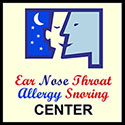Food Allergies
 Can be life threatening for some!
Can be life threatening for some!
Food allergies can range from mild to severe, but for those who suffer with food allergies, they are a bothersome and perhaps life-threatening health problem. It is important to understand your food allergies and what to do if you come in contact with an allergic substance.
The most common food allergies are peanuts, eggs, soy, corn, chocolate, pineapple, tomatoes, wheat allergy and milk allergies. Shellfish and other fish are also common sources. Heredity can play a part in whether you will develop allergies. Some people outgrow their allergies, and others develop allergies later in life for no apparent reason. Allergies can also manifest differently within families. Your mother may be allergic to tomatoes, while your brother is allergic to corn and you have a wheat allergy. You may be allergic to pineapple as a child, only to discover as an adult that it doesn’t bother you.
What is a food allergy anyway?
Food allergies begin when your immune system decides that something you have eaten is harmful to you.
What is the role of the immune system?
It is the job of the immune system to protect your body, so when it detects something harmful, it springs into action, producing something called IgE antibodies.
What are IgE antibodies?
These are special proteins your body makes that help your immune system to identify harmful substances, so that your immune system can do its job of getting rid of the invader.
Your immune system works great for viruses and harmful substances you want to get rid of, but your immune system can also over-react for no known reason and begin to fight against substances that really aren’t harmful. This is when you have an allergic reaction. This is also why you may have been able to eat eggs or chocolate or drink milk all your life, and now you’ve suddenly developed a milk allergy or become ill after eating eggs or chocolate.
For people with severe food allergies, just touching the offending food or breathing it in can set of an allergic reaction. A runny nose and itchy eyes are troublesome but, for some, swelling of the throat, stomach pain, and trouble breathing signal a fast visit to the emergency room.
The only sure way to treat food allergies is to avoid the foods that cause an allergic reaction. This includes not eating it, touching it, or perhaps even being around others who are eating or touching the offending food. When eating out, be sure what you have ordered from the menu was not prepared with a food you are allergic to. For example, that stir-fry may have been cooked in peanut oil. So even though there are no peanuts in the stir-fry, the oil it was cooked in will set off an allergic reaction. Or that fried chicken may have eggs in the batter. Speak to the server and ask questions to make sure you are safe when eating out.
You can live with food allergies if you stay informed about how to handle them. Speak to your physician for more information that can help you control your allergies so they don’t control you.
